Welcoming a newborn brings joy, sleepless nights and the age-old question: “What’s for dinner?” Between diaper changes and feeding schedules new parents barely have time to shower let alone cook nutritious meals. That’s where meal delivery services step in as the modern-day food fairy godmother.
These convenient services have become a lifeline for exhausted parents who want to maintain a healthy diet without spending precious energy in the kitchen. From ready-to-heat meals to gourmet meal kits meal delivery options can transform those chaotic early parenting days into slightly-less-chaotic ones. After all nothing says “I’ve got this parenting thing down” quite like enjoying a hot delicious meal while the baby finally sleeps.
Table of Contents
ToggleWhy New Parents Need Meal Delivery Services
Caring for a newborn consumes 14-17 hours daily, leaving minimal time for meal preparation. Sleep deprivation affects 76% of new parents, making complex cooking tasks challenging and potentially dangerous.
Meal delivery services address these common challenges:
- Time Management: Parents save 45-60 minutes per meal through pre-prepared ingredients or ready-made dishes
- Nutrition Support: Professional chefs create balanced meals containing essential nutrients for postpartum recovery
- Reduced Decision Fatigue: Pre-planned menus eliminate daily meal planning stress
- Portion Control: Individual servings prevent food waste from overbuying perishables
- Dietary Accommodations: Services cater to specific needs like lactation support or gluten-free requirements
Research shows the impact of proper nutrition during postpartum:
| Nutrient Needs | Percentage Increase |
|---|---|
| Protein | 54% higher |
| Calcium | 67% higher |
| Iron | 45% higher |
| Calories | 300-500 extra |
Physical limitations also affect new parents’ cooking abilities:
- Recovery Period: C-section patients face 6-8 weeks of restricted movement
- Feeding Schedule: Newborns eat every 2-3 hours, interrupting meal preparation
- Limited Mobility: Carrying infants reduces cooking safety
- Energy Conservation: Sleep-deprived parents benefit from simplified meal solutions
Meal delivery services provide essential support during this transitional period, ensuring parents maintain proper nutrition while focusing on their newborn’s needs.
Best Types of Meal Delivery Services for Parents
Meal delivery services offer distinct options to match different parenting schedules and cooking preferences. Each service type provides unique benefits for parents navigating the demands of newborn care.
Ready-to-Heat Prepared Meals
Ready-to-heat meals arrive fully cooked and require minimal preparation time. Popular services like Freshly and Factor deliver chef-prepared meals that stay fresh for 7 days in the refrigerator. These meals heat up in 3 minutes using a microwave or 15 minutes in an oven. Top providers offer rotating menus with 30+ weekly options including breakfast bowls, protein-rich entrees and vegetarian dishes. Parents select individual portions or family-size servings based on their needs. The meals come packaged in microwave-safe containers that eliminate cleanup time.
Meal Kit Subscriptions
Meal kit services deliver pre-portioned ingredients with step-by-step recipes for home cooking. Services like HelloFresh and Blue Apron provide 20-minute recipe options designed for quick assembly. Each kit contains pre-chopped vegetables, pre-measured seasonings and marinades plus clearly labeled proteins. Parents choose 2-5 recipes weekly from 15+ menu options that accommodate dietary preferences. The ingredients arrive in insulated boxes with ice packs to maintain freshness for 48 hours after delivery.
Grocery Delivery Options
Online grocery delivery combines convenience with customization for parents’ specific needs. Services like Instacart and Amazon Fresh offer same-day delivery within 2-hour windows. Parents create custom shopping lists including fresh produce, pantry staples and baby essentials. The services provide real-time inventory updates and allow product substitutions. Multiple stores integrate into single deliveries to access specialty items. Dedicated shoppers communicate about out-of-stock items through mobile apps. Regular delivery schedules automate weekly grocery shopping with saved lists.
Key Features to Look for in Postpartum Meal Services
Selecting the right meal delivery service during the postpartum period requires careful consideration of specific features. Essential components ensure both nutritional adequacy and practical support for new parents.
Nutritional Value for Recovery
Postpartum meal services focus on nutrient-dense ingredients that support healing and lactation. Quality services include meals rich in iron-containing foods like lean meats leafy greens to replenish blood loss during delivery. Protein portions range from 25-30 grams per meal supporting tissue repair and maintaining muscle mass. Balanced meals incorporate omega-3 fatty acids from sources like salmon or walnuts promoting brain health and reducing inflammation. Services offering customizable portions accommodate increased caloric needs ranging from 2300-2500 calories for breastfeeding mothers. Meals include calcium-rich ingredients such as dairy products fortified grains providing 1000mg daily for bone health.
Convenience and Flexibility
Top-rated postpartum meal services provide flexible delivery schedules with options for weekly bi-weekly or monthly deliveries. Subscription plans offer pause resume or cancel features accommodating changing family schedules. Meals arrive in microwave-safe containers lasting 3-5 days in the refrigerator. Storage-friendly packaging takes up minimal space fitting easily into standard refrigerator shelves. Services offer multiple portion sizes serving 1-4 people per meal. Delivery windows span from 2-hour specific time slots to all-day delivery options. Meal rotation includes 15-20 different recipes each week preventing menu fatigue. Online platforms enable order modifications up to 48 hours before scheduled delivery.
Top Meal Delivery Companies for New Parents
Meal delivery companies offer specialized services tailored to new parents’ unique nutritional needs and time constraints. These services range from premium offerings with personalized menus to cost-effective solutions that maintain quality while fitting various budgets.
Premium Services
Sakara Life delivers organic plant-based meals focusing on postpartum nutrition with prices starting at $239 weekly. The service includes three daily meals featuring ingredients rich in iron, protein, and essential nutrients for recovery. Territory Foods provides customizable portions with chef-prepared meals starting at $165 weekly, accommodating specific dietary preferences like dairy-free or gluten-free options. Purple Carrot’s specialized plant-forward meal kits cost $187 weekly, featuring recipes designed by nutritionists to support lactation and healing. Epicured offers low-FODMAP meals starting at $174.99 weekly, ideal for parents with sensitive digestive systems or food allergies.
Budget-Friendly Options
EveryPlate delivers meal kits at $4.99 per serving with simple 30-minute recipes perfect for quick preparation. Dinnerly offers affordable meal options starting at $4.69 per serving, featuring digital recipe cards and fewer ingredients to maintain low costs. Home Chef’s Fresh Start menu provides customizable portions from $8.99 per serving, allowing parents to skip weeks without penalties. Daily Harvest offers smoothies and harvest bowls starting at $5.99 per item, featuring flash-frozen ingredients that reduce food waste and save money.
| Service | Starting Price | Key Features |
|---|---|---|
| Sakara Life | $239/week | Organic, plant-based, postpartum focused |
| Territory Foods | $165/week | Chef-prepared, customizable portions |
| EveryPlate | $4.99/serving | Simple recipes, budget-friendly |
| Dinnerly | $4.69/serving | Digital recipes, minimal ingredients |
How to Choose the Right Meal Plan
Selecting an appropriate meal delivery service requires careful consideration of specific factors that align with postpartum needs. The right meal plan accommodates both nutritional requirements and practical limitations of new parents.
Dietary Preferences and Restrictions
Meal delivery services offer diverse menu options to accommodate common dietary requirements. Plant-based meal plans include protein-rich alternatives like quinoa, tempeh or lentils for vegetarian parents. Gluten-free options feature certified ingredients safe for celiac disease or gluten sensitivity. Services like Sun Basket cater to specialized diets including paleo, keto, Mediterranean or dairy-free with 8-12 weekly rotating menu items. Parents with food allergies benefit from services that maintain dedicated allergen-free facilities. Most providers list complete nutritional information, ingredients lists and potential allergens for each meal option.
Storage and Preparation Requirements
Storage capacity impacts meal plan selection based on delivery frequency and preparation methods. Fresh meals require 3-5 days of refrigerator space while frozen options last 2-3 months. Meal kits include raw ingredients needing 15-30 minutes of prep time plus cooking. Ready-to-heat meals take 3-5 minutes in the microwave or 15 minutes in a conventional oven. Parents with limited kitchen space opt for portion-controlled individual meals rather than family-style options. Services offering recyclable packaging minimize waste storage needs. Proper temperature control during delivery ensures food safety through insulated boxes with ice packs maintaining temperatures below 40°F.
Cost Considerations and Value
Meal delivery services for new parents range from $8 to $25 per serving, with premium options reaching $40 per meal.
| Service Type | Cost Per Serving | Weekly Cost (14 meals) |
|---|---|---|
| Budget Meal Kits | $8-12 | $112-168 |
| Standard Prepared Meals | $12-18 | $168-252 |
| Premium Services | $20-40 | $280-560 |
Comparing costs reveals significant savings over takeout options, which average $35 per meal for two people. Bulk ordering reduces per-meal prices by 15-25% through subscription discounts. Delivery fees vary between $5-15 per shipment, though many services offer free delivery for orders above $100.
Storage capacity impacts overall value, as buying multiple meals requires adequate freezer space. Fresh meals last 3-5 days in the refrigerator while frozen options maintain quality for 3-6 months. Meal kits occupy less storage space yet demand 20-30 minutes of preparation time.
Hidden costs include:
- Packaging disposal
- Additional ingredients for meal kits
- Minimum order requirements
- Subscription cancellation fees
- Seasonal price fluctuations
Value-maximizing strategies include:
- Selecting bi-weekly deliveries for larger portions
- Combining frozen meals with fresh options
- Taking advantage of new customer promotions
- Sharing subscriptions with other families
- Opting for family-size portions
- Current grocery spending
- Food waste reduction
- Time saved from shopping
- Energy preserved from meal prep
- Nutritional improvements
Conclusion
Meal delivery services offer a lifeline for new parents navigating the demanding early days of parenthood. These services provide much more than just convenience – they’re a vital support system that helps parents maintain proper nutrition while focusing on their newborn’s needs.
Whether choosing ready-to-heat meals premium meal kits or budget-friendly options there’s a solution for every family’s unique circumstances. The investment in meal delivery services pays off through reduced stress better nutrition and precious time saved during a period when every minute counts.
For new parents looking to thrive during the postpartum period meal delivery services aren’t just a luxury – they’re a practical tool that supports physical recovery emotional wellbeing and the journey into parenthood.






